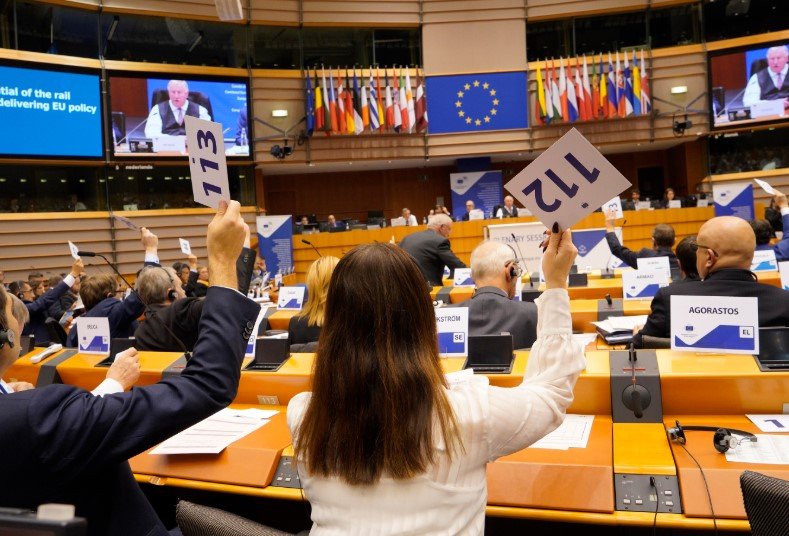Georgia’s Foreign Minister Maka Bochorishvili voiced strong doubts about the European Commission’s upcoming enlargement report, claiming it could show bias and fail to capture the nation’s real advances. The statement came just before the report’s release on November 4, 2025, in Brussels, amid growing tensions over Georgia’s path to EU membership.
Background on the Enlargement Report
The European Commission’s 2025 Enlargement Package reviews progress for countries seeking EU membership, including Georgia. This annual document looks at reforms in areas like democracy, rule of law, and economic stability.
Georgia gained candidate status in late 2023, but recent events have strained ties with the EU. The report arrives after disputed parliamentary elections in October 2024, which sparked protests and claims of fraud. EU officials have pointed to democratic setbacks, such as new laws on foreign influence that critics say limit free speech.

Bochorishvili’s comments highlight a divide. She pointed to positive economic indicators and global rankings that show Georgia moving forward, despite political challenges.
Minister’s Key Concerns
Bochorishvili told reporters that recent EU statements seem unfair. “We have seen fewer objective views from the European Union about Georgia,” she said. “The assessments are mostly biased.”
She expects the report to overlook major steps Georgia has taken. This includes economic growth and reforms in various sectors. The minister urged waiting for the full document to judge its fairness.
Her words reflect frustration in Tbilisi. Georgia has pushed for closer EU ties, but actions like pausing accession talks have fueled doubts. Bochorishvili based her view on EU moves over the past year, which she sees as politically driven.
The report will cover alignment with EU standards. Early leaks suggest it criticizes Georgia for backsliding on democracy while praising countries like Ukraine and Moldova.
Georgia’s Recent Achievements
Despite the criticism, Georgia has made strides in several areas. Economic data paints a bright picture, with strong growth rates standing out.
Here are some key highlights from recent assessments:
- Real GDP grew by 9.4 percent in 2024, beating forecasts and up from 7.8 percent in 2023.
- Projections for 2025 show a solid 6 percent growth, driven by sectors like tech, education, and trade.
- The Chandler Institute’s 2025 Good Governance Report ranked Georgia among Europe’s top three for long-term vision, placing it 16th globally.
These figures come from sources like the European Bank for Reconstruction and Development. They show resilience amid political unrest.
Georgia has also advanced in anti-corruption efforts and infrastructure projects. For example, investments in energy and transport align with EU green goals. Yet, the government argues these wins get overshadowed by focus on election issues.
EU’s Perspective and Broader Context
From the EU side, the report stresses concerns over governance. A draft seen by media outlets slams Georgia for democratic backsliding, including limits on civil society.
This fits a pattern. In October 2024, EU leaders paused Georgia’s accession due to reform shortfalls. Alignment with EU foreign policy stands at just 49 percent, far below targets.
Other candidates fare better. The report gives positive marks to Albania, Moldova, Montenegro, and Ukraine for their reforms.
| Country | Key Progress Noted | Alignment Rate |
|---|---|---|
| Georgia | Economic growth, but democratic issues | 49% |
| Ukraine | Reforms amid war, strong EU alignment | High |
| Moldova | Good advances in governance | Positive |
| Albania | Judicial reforms | Advancing |
This table shows how Georgia compares. The low alignment rate ties to differences on issues like Russia relations.
Tensions rose after Georgia’s ruling party won the 2024 elections with about 53 percent, amid opposition claims of rigging. Protests followed, and some EU members called for new votes.
Impact on EU-Georgia Relations
Bochorishvili’s warning could widen the gap. If the report is harsh, it might delay membership talks further. Georgia aims to join by 2030, but setbacks make that tough.
Public opinion in Georgia remains pro-EU, though trust has dipped. Surveys show support at around 49 percent in early 2025, down from 66 percent a year before.
The government plans to respond after the report’s release. Officials say they will highlight facts to counter any bias. This comes as Georgia balances ties with the West and neighbors like Russia.
Logical reasoning suggests both sides have valid points. Georgia’s economy booms, but democratic norms matter for EU entry. Recent events, like the foreign agents law, echo similar debates in Hungary and Poland.
What Happens Next
The report’s release will shape next steps. EU commissioners will present it in Brussels, followed by discussions in the European Parliament.
Georgia could use it as a roadmap for fixes. Experts recommend focusing on judicial independence and media freedom to rebuild trust.
In the meantime, Tbilisi pushes its narrative of progress. Bochorishvili’s team points to global endorsements, like strong IMF forecasts, to argue for a fairer view.
As this story develops, readers should watch for official reactions. Share your thoughts in the comments below or spread the word on social media to join the conversation on Georgia’s EU journey.
